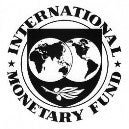
Diego AguirreThe recent online intrusion into International Monetary Fund servers may have been the work of malicious hackers working for a foreign government, according to online reports.
The IMF is reportedly reluctant to disclose where it believes the attacks came from since 187 of the world's 194 nations (as recognized by the U.S. Department of State) are members of the fund. The hack's perpetrators obtained a "large quantity of data," including e-mail and other documents during the intrusion, according to Bloomberg.

The attacks reportedly began before May 14 when IMF Managing Director Dominique Strauss-Kahn was arrested in New York on sexual assault charges.
The IMF provides, among other functions, economic assistance and policy advice to nations in financial distress to help stabilize the global economy. That means the global agency has, as The New York Times recently reported, "highly confidential information about the fiscal condition of many nations." As such, the IMF's files contain "political dynamite" that could affect global markets, according to the Times. It's not clear if the data stolen from the IMF was particularly sensitive.
Spear Phishing
How hackers were able to penetrate the IMF's network is still unknown. But it appears the intrusion may have been the result of a spear phishing attack. This kind of attack typically works by tricking an employee into clicking on a link to a malicious website or downloading a file loaded with malware.The IMF is not alone in falling victim to an online hack. In fact, the agency is just the latest in a string of high-profile attacks against corporations and organizations such as Google, Sony, Lockheed Martin, RSA Security, and CitiGroup. Here's a look at other high profile online break-ins and foiled attacks that are turning 2011 into the Year of the Malicious Hacker.
CitiHack

The personal details of about 210,000 CitiGroup cardholders were recently stolen after a security breach via Citi's web portal.
The malicious hackers were able to get away with cardholders' names, account numbers, and contact information such as e-mail addresses.
More oyher business: Acer aspire 5520 battery
Google Spars With China

On June 1, Google said it had discovered a campaign originating from Jinan, China to steal Gmail user names and passwords of hundreds of users including "senior U.S. government officials, Chinese political activists, officials in several Asian countries (predominantly South Korea), military personnel and journalists."
Google isn't certain (or saying) how the attacks were carried out, but suspects that spear phishing played a role. The search giant says its internal systems were not affected by the attacks, and secured the accounts of all those affected by the attacks. China denies having any role in the Gmail hacks.
Lockheed Martin
Lockheed Martin, a major defense contractor for the U.S. government, in late May detected an intrusion into its servers.The company said it was able to take "aggressive actions to protect all systems and data" and that no data from customers, programs or employees was compromised. The attackers reportedly used purloined security tokens obtained through a hack in March against one of Lockheed Martin's security providers, RSA Security.
RSA (In)SecurID

EMC notified its users in March that one of its companies, RSA Security, was the victim of an "extremely sophisticated cyber attack." Malicious hackers obtained data relating to RSA's SecurID two-factor authentication system, the company said.
More oyher business: Dell inspiron 1520 battery
But EMC was confident the stolen data would not "enable a successful direct attack on any of our RSA SecurID customers." The company reversed course in early June after it was revealed the SecurID hack was related to the Lockheed Martin break-in.
RSA's "extremely sophisticated cyber attack" later turned out to be the result of a "low-profile" user downloading a malicious Excel spreadsheet via email.
Epsilon's Lost Address Book
In April, Epsilon, the world's largest permission-based e-mail marketer, said its servers had been compromised exposing many people's real names and e-mail addresses.The hack exposed the customer databases for many major companies such as JPMorgan Chase, Capital One, Marriott Rewards, US Bank, Citigroup, and Walgreens.
Sony's Never-Ending Story

Of course, the most famous attacks in recent months are those aimed at Sony and its subsidiaries. At last count, at least 13 Sony sites have been hit around the world including the PlayStation Network, Sony Online Entertainment, Sony Pictures, and country-specific Sony sites in Japan, Greece, Thailand, and Canada. The hacks resulted in a variety of customer data breaches including names, e-mail addresses, home addresses, phone numbers, and, in some cases, credit card numbers.
If you were the victim of a recent hack against a bank or other online service, check out PCWorld's "Are You a Data Breach Victim? Here's What to Do."
Tagcloud : IMF, Dell latitude d630 battery ,hp pavilion dv6 battery
No comments:
Post a Comment